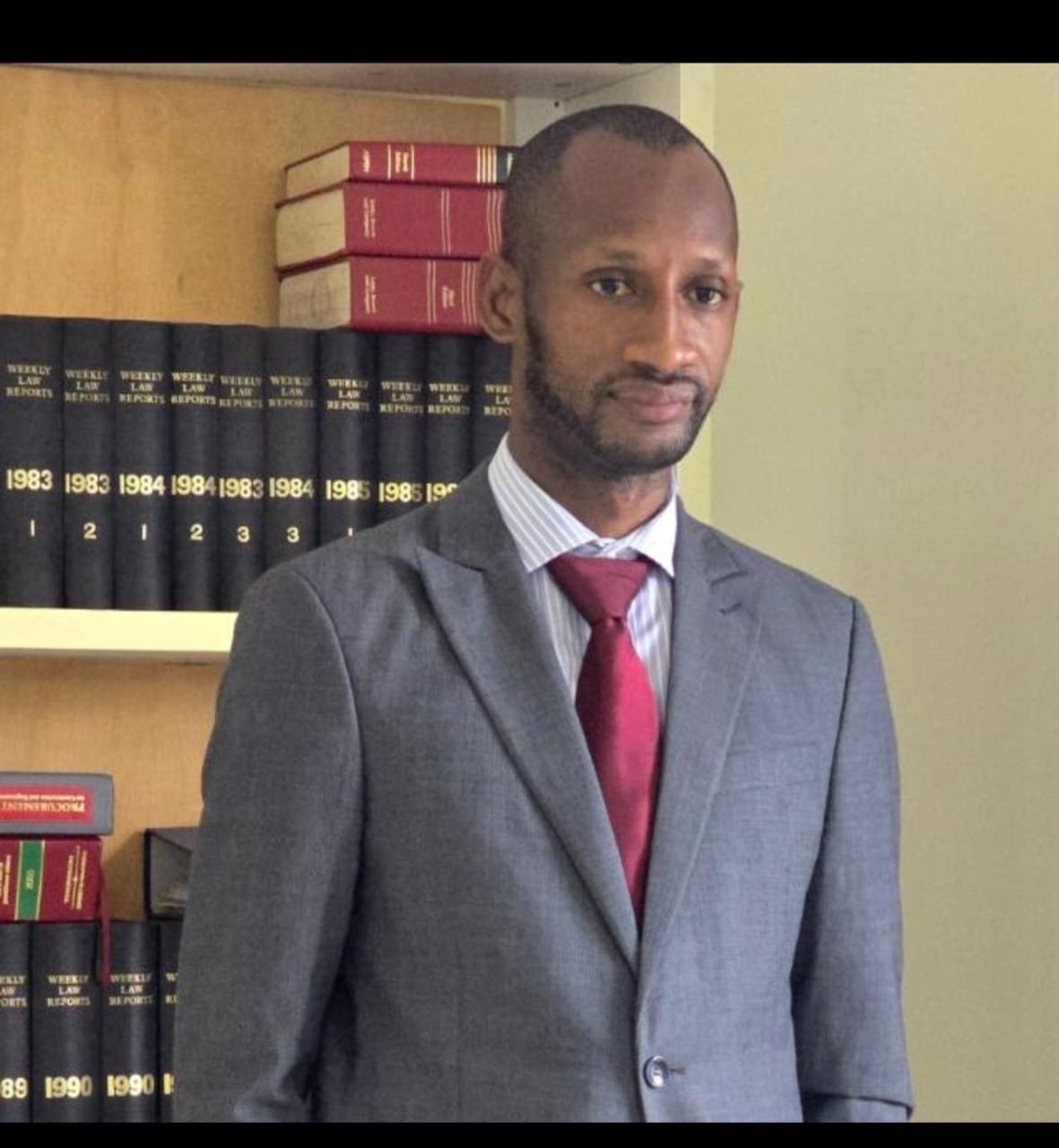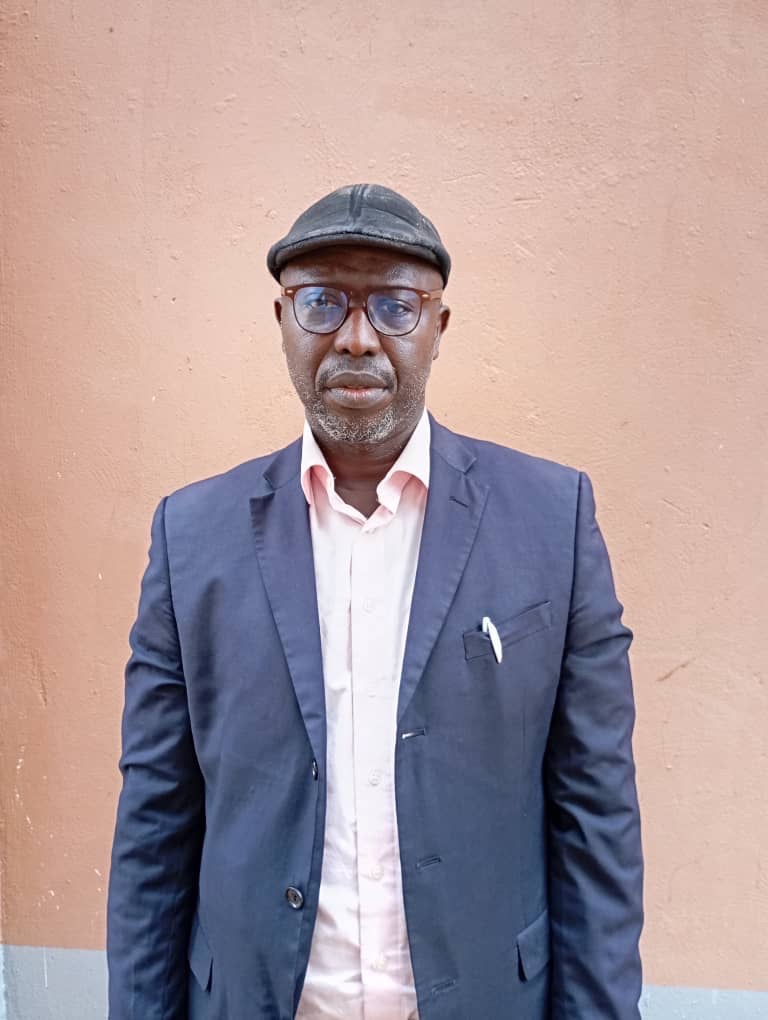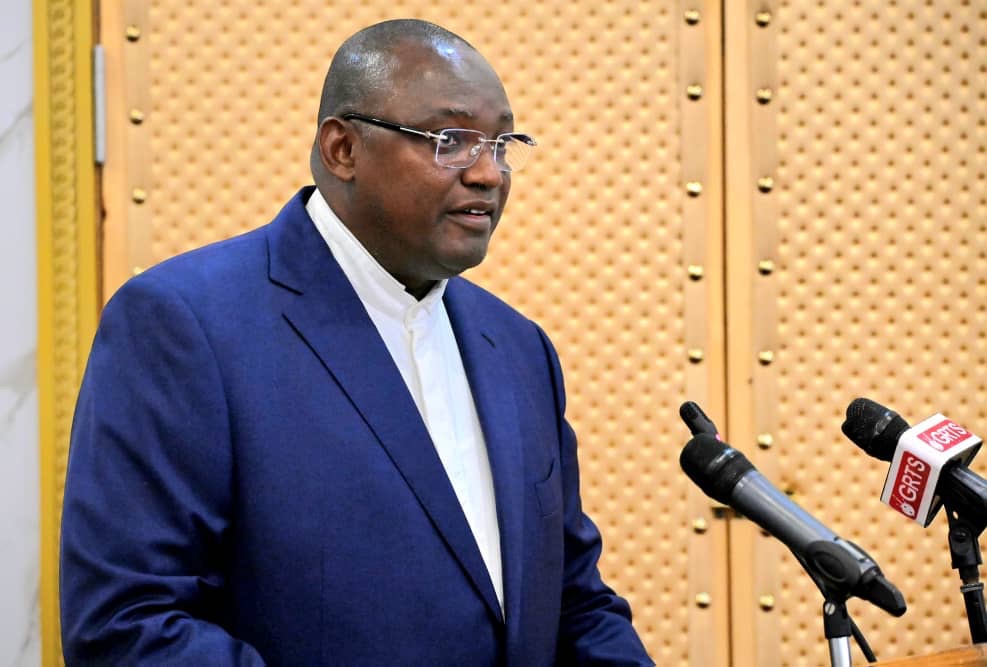By: Ibrahim Jallow – A Lawyer & Anti-corruption Policy analyst
The Qur’an provides comprehensive guidance for every aspect of life, aiming to help believers lead a balanced and fulfilling existence. Muslims can align their lives with divine guidance by adhering to its principles.
Muslims regard the texts and words in the Holy Qur’an as Holy. Muslims considers the words of the Qur’an as God’s words transmitted to Prophet Muhammad (Pbuh) through a chain of command to warn humanity—after many had gone astray—and to serve as guidance on the right path. The Qur’an explains that it is from the same sources as the Torah of Moses and the Evangel of Jesus:
“He (God) has revealed to you the Book (the Qur’an) with truth confirming what has been before it, and sent down the Torah and Injil (Evangel of Jesus) earlier to give evidence to mankind, and sent down the Furqan (another name for the Holy Qur’an meaning a criterion of right and wrong).” (Qur’an 3:2-4)
God confirms that the Holy Qur’an is indeed a comprehensive book: “We (God) have not missed anything in the Book (the Qur’an).” (Qur’an 6:38)
ALLAH stated in Surah An-Nahl 16:89: “And We have sent down to you the Book (the Qur’an) as an exposition of everything, guidance, mercy and glad tiding for those who have submitted themselves (to Allah).”
This verse highlights the Qur’an’s role as a complete guide for living a life that pleases God and benefits both body and soul. It encompasses spiritual, moral, civil, economic, political, and criminal codes, offering a holistic approach to life.
Upon reading the Qur’an, it becomes evident that writing about its anti-corruption lessons is an inexhaustible task. It requires a thorough reading and analysis of the Qur’an, with a special focus on the references of several verses to history and current affairs affecting human endeavors in all spheres of life.
Islam is the religion based on the teachings of the Qur’an and Sunnah of Prophet Muhammad (pbuh). As such, Islam is indeed a significant global religion, with approximately 2 billion followers, making it the second-largest in the world. The majority of Muslims reside in Asia and Africa, with countries like Indonesia, Pakistan, Bangladesh, Nigeria, and Egypt having some of the largest Muslim populations.
In 2023, Transparency International perceived that around 40 percent of the 50 most corrupt countries have Muslim-majority populations. Many of these countries are in Asia and Africa, reflecting broader regional trends rather than specific religious influences. The correlation between Muslim-majority countries and high corruption levels in some regions is a complex issue. It involves various factors such as political instability, economic challenges, historical contexts, and governance structures.
The prevalence of crimes, corruption, human rights violations and abuses in about 40 percent of countries in Asia and Africa some of these countries with Muslim majority, highlights how socio-economic, political, and historical factors can shape lives of people whose faith preaches and proscribed against the same acts .
It’s crucial to understand that Islam, at its core, advocates for justice, accountability, and moral integrity, as highlighted in the Qur’an and the teachings of Prophet Muhammad (Pbuh), as emphasized in the Qur’an.
For example, Surah Al-Baqarah 2:188 states: “And do not consume one another’s wealth unjustly or send it [in bribery] to the rulers so that [they might aid] you [to] consume a portion of the wealth of the people in sin, while you know [it is unlawful].”
The ethical teachings of Islam can play a significant role in combating corruption and promoting good governance. A comprehensive approach is essential to address corruption effectively, involving following several key elements:
1. Legal Reforms
• Transparency and Accountability: Implementing laws that ensure transparency and accountability in government institutions and agencies is crucial. Such reforms should align with Islamic principles of justice and fairness.
• Robust Legal Framework: Establishing and enforcing stringent anti-corruption laws is essential for curbing corrupt practices and holding offenders accountable.
2. Civic Education
• Awareness of Rights and Responsibilities: Educating citizens about their rights and obligations is vital. Islam emphasizes the importance of knowledge and ethical behavior. Civic education empowers citizens to demand integrity from their leaders and report corrupt practices.
• Community Engagement: Encouraging active community participation in governance helps monitor and report corruption. Islamic teachings promote social justice and communal responsibility, fostering a culture of vigilance against corruption.
• For instance, Prophet Muhammad (Pbuh) emphasized the importance of accountability and integrity in governance, as seen in numerous hadiths. In Sahih Muslim, the Prophet said: “Every one of you is a shepherd and is responsible for his flock. The leader of a people is a guardian and is responsible for his subjects”. (Sahih Muslim, Book 20, Hadith 4496)
3. Strengthening Governmental Institutions
• Adequate Manpower and Expertise: Ensuring that institutions are staffed with trained professionals who adhere to ethical practices is crucial. Continuous training on anti-corruption strategies enhances their effectiveness.
• Utilizing Technology: Implementing modern technology to monitor and prevent corruption increases transparency and efficiency. Digital audits and e-governance platforms reduce opportunities for corrupt practices and enhance accountability.
4. Protecting Human Rights
• Justice and Fairness: Islam places a strong emphasis on justice and the protection of human rights. Anti-corruption measures should uphold these values to maintain public trust and ensure that individuals are treated fairly.
• Transparent Judicial Processes: Enhancing the transparency and integrity of the judiciary fosters trust in the legal system. An independent judiciary is crucial for upholding justice and effectively combating corruption.
5. Promoting Good Governance
• Ethical Leadership: Leaders who adhere to Islamic principles of accountability and moral conduct can inspire others to act with integrity. Ethical leadership is pivotal in promoting good governance and setting a positive example for others to follow.
• Effective Policy Implementation: Proper implementation of anti-corruption policies is as important as their formulation. Continuous monitoring and evaluation ensure that policies achieve their intended outcomes and adapt to evolving challenges.
By integrating these principles, societies can create an environment where corruption is minimized, and good governance prevails. The ethical teachings of Islam provide a robust framework for fostering integrity, justice, and transparency in all aspects of governance. Highlighting these teachings and implementing robust legal and educational reforms can help mitigate corruption and foster better governance.
Like corruption, illicit financial flows (IFFs) are a significant problem for many developing countries, particularly in Africa. These flows often involve money laundering, tax evasion, and other illegal activities, which can severely impact economic stability and development. It’s disheartening to see how much money is lost through these illicit activities, with estimates suggesting that Africa loses around $50 billion annually through illegal financial flows into Europe and the United States of America. Efforts to combat these issues require strong international cooperation and robust legal frameworks.
Efforts have been made to address the illicit flow of proceeds of crimes, for example, in the UK and the US. However, if the cycle of illicit flow of proceeds of crimes from Africa and Asia is not thoroughly checked, it will continue to create economic imbalances in Africa and Asia and perpetuate poverty, armed conflict, and crime – economic and political servitude.
Blaming the victims of corruption for their financial and political woes while forgiving the recipients of the proceeds of corruption is not realistic. The anti-corruption propaganda that squarely blames corrupt countries while praising the enabler countries as less corrupt is counterproductive. The western centric narrative about corruption in Africa and Asia is pure altruism.
For example, in 2016, during the UK’s anti-corruption summit in London, former British Prime Minister David Cameron, in conversation with Queen Elizabeth, remarked thus: “Nigeria and Afghanistan are fantastically corrupt countries… possibly the two most corrupt countries in the world.”
While there may be some truth to the statement, it is crucial to consider the historical role played by the UK in shaping the socio-economic and political lives of people in Nigeria and Afghanistan. The historical economic and political influence the UK exerts on these countries justifies the conclusion that the UK has also played a role in shaping the dysfunctional economic and political systems in Nigeria and Afghanistan.
Although Nigeria and Afghanistan have not yet fully recovered from the socio-economic and political shackles of the 19th-century British colonialism, the situation in Afghanistan has been further complicated by ongoing political and military interventions. The United Kingdom, in particular, has continued to exert influence in Afghanistan under the guise of fighting terrorism and promoting democracy.
The 20-year military involvement in Afghanistan, led by the United States and the United Kingdom under NATO, resulted in significant civilian casualties and displacement. Despite these efforts, the Taliban regained power almost immediately after NATO’s military departure in 2019, highlighting the failure of this military intervention. The aftermath of this prolonged conflict has left Afghanistan struggling with democratic governance and persistent corruption.
Contrastingly, countries such as the UK is often seen as “safe havens” for laundering proceeds of crime and yet UK is perceived as less corrupt. Understanding why certain nations are revered as less corrupt while others are plagued by corruption is crucial. It involves examining the historical, political, and socio-economic factors that shape governance and public trust in different regions.
Despite the strong condemnation of corruption by the Qur’an and the Sunnah of Prophet Muhammad (PBUH) as an evil way of life, the impacts of colonial legacy continue to shape the socio-economic and political systems in many Muslim-majority countries. This historical influence helps explain why the anti-corruption teachings of the Holy Qur’an and the Sunnah of Prophet Muhammad (PBUH) may not have fully permeated the lives of Muslims in these regions.
Afghanistan, with an estimated 99.7 percent Muslim majority population, and Nigeria, with over 100 million Muslims making up 50 percent of Nigeria’s population, exemplify how the implementation of the teachings or lessons of the Qur’an and Sunnah of Prophet Muhammad (PBUH) against corruption can influences and help shaped their socio-economic conditions. However, despite the Qur’an’s strong emphasis on ethics, transparency, accountability, justice and good governance etc., the challenges posed by corruption and governance issues are deeply rooted in the complex interplay of historical, political, and socio-economic factors. Efforts to improve good governance must consider as a primary goal by governments.
The Qur’an aims to purify the soul, to promote social justice, equality, and fairness by advocating personal accountability, peace, tolerance, and respect for diversity among people of different faiths and socio-economic and political backgrounds, and encourages the pursuit of a lawful livelihood. The Qur’an prohibits usury or unfair business practices. The guiding concept of the Qur’anic teachings is refer to as “Taqwa” it denotes “piety” or “God-consciousness.” It encompasses the concepts of fear of God, righteousness, and a sense of responsibility and duty towards Allah and fellow human beings. The anti-corruption teachings in the Qur’an are universal principles that transcend all faiths and traditions, although the teachings of the Qur’an particularly impact the daily lives of those who believe and act on it teachings.





